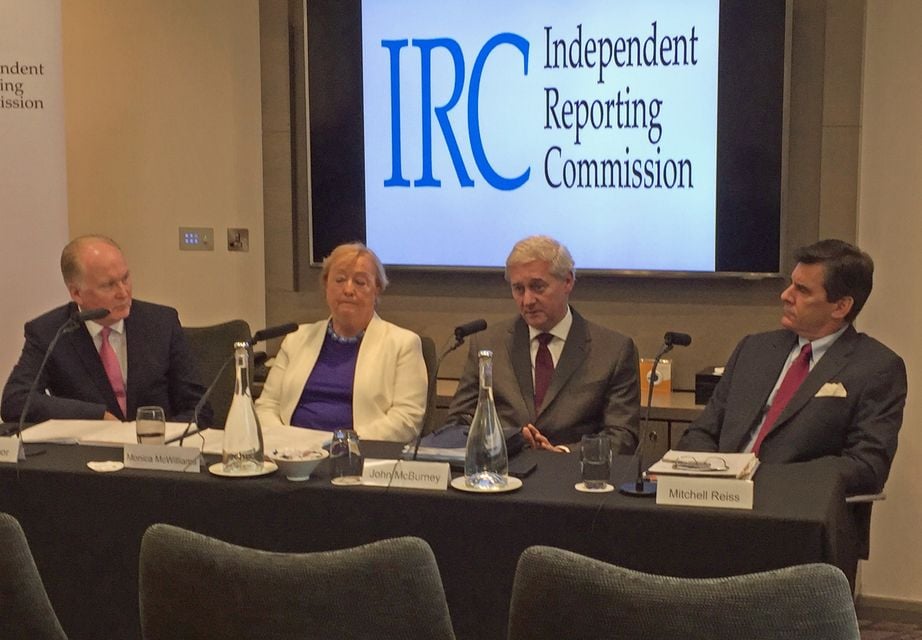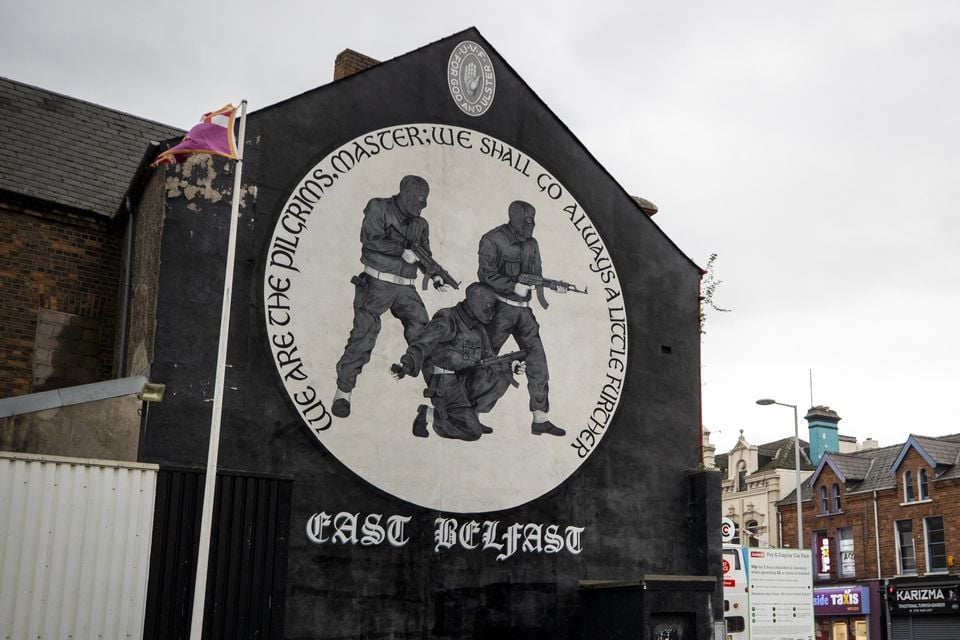A trusted intermediary is needed to oversee the transitioning of paramilitary groups, a report said today.
The Independent Reporting Commission (IRC) urged the UK and Irish governments to appoint an independent person to scope out what a formal process of engagement and group transition might look like.
The latest IRC report, which was released today, was completed prior to the attempted murder of taxi driver Sean O’Reilly on Sunday. It is being linked to a dissident republican feud.
The IRC comprises four commissioners: John McBurney and Monica McWilliams, who were nominated by the Northern Ireland Executive, Tim O’Connor, nominated by the Irish Government, and Mitchell Reiss, nominated by the UK Government.
The commissioners said: “There has been a decrease in shooting incidents and paramilitary-style assaults.
“However, bombing incidents and casualties from paramilitary-style shootings have remained consistent with previous years. Intimidation, coercive control and threats linked to paramilitary groups persist and remain a real concern.”
They added: “In 2024, we have seen shifting dynamics within both republican and loyalist paramilitary groups, including changes in leadership, reported splits, speculation about possible feuds, ongoing questions about whether actions were sanctioned by paramilitary leaders, various interpretations of larger gatherings of people, and increasing interactions with organised crime.
“We understand that this can be challenging for the PSNI and others in attributing responsibility for, or involvement in, certain actions.”
The IRC said that where there is paramilitary involvement it must be called out.
(From left) Tim O’Connor, Monica McWilliams, John McBurney and Mitchell Reiss (Photo: Michael McHugh)
In their previous report, the commissioners said tackling paramilitarism requires a “twin-track approach”.
They now call for a “third dimension” to complement that.
“Recognising that group transition is a complex and controversial recommendation, the commissioners, in both their fifth and sixth reports, proposed an intermediate step in the form of the appointment by the UK and Irish Governments of an independent person who would scope out and prepare the ground with various stakeholders for what a possible formal process of engagement and group transition might look like,” they said.
“We welcome the progress being made by the two Governments towards implementing our recommendation to appoint an independent person who would scope out what a possible formal process of engagement and group transition might look like.”
The commissioners also welcomed the focus on paramilitarism in the new draft Programme for Government of the Northern Ireland Executive.
“We strongly recommend that some of the targeted paramilitary-focused work which the programme has been responsible for should continue beyond 2027, while also ensuring that consideration is given to those elements of the work of tackling paramilitarism that could be integrated into mainstream policies.”
This report contains three new recommendations.
These are a call for the review of the membership of the sponsor group which oversees the Executive Programme on Paramilitarism and Organised Crime and that the Executive ensures a “whole-of-government” approach.
They have also recommended that paramilitary-focused work needs to continue beyond March 2027 when the Executive Programme on Paramilitarism and Organised Crime is due to end.
Read more
Mourners attend the funeral of Brendan ‘Bik’ McFarlane

